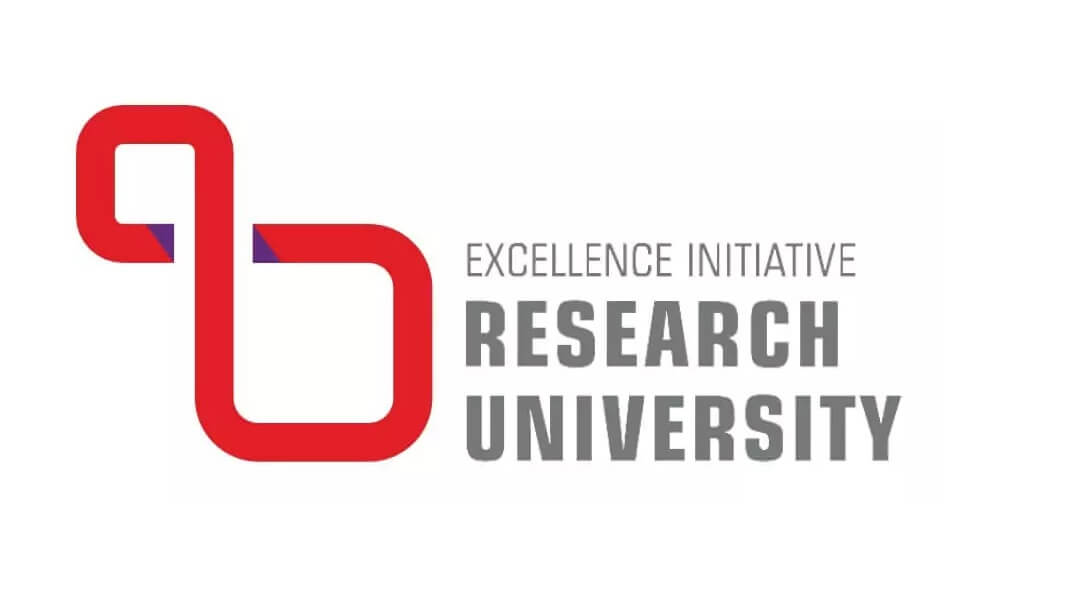Scientific Council of the UW Institute for Advanced Studies
The role of the UW IAS Scientific Council
-
Advising on the organisational framework for the UW IAS
-
Reviewing the distribution of funds among the UW IAS programmes
-
Assessing the scientific potential and value of the projects applying for the UW IAS support and the feasibility of carrying them out at the University of Warsaw
-
Supporting other activities planned under the Priority Research Area – as an advisory and opinion-forming body
The composition of the UW IAS Scientific Council
The Scientific Council is composed of the Institute’s Coordinator and independent researchers appointed by the Academic Councils of the Academic Disciplines: Astronomy, Physical Sciences, Chemical Sciences, Biological Sciences, and Earth and Related Environmental Sciences.
UW IAS Coordinator
Prof. Zygmunt Lalak, Ph.D. (read more about the UW IAS Coordinator)
Chairman of the UW IAS Scientific Council
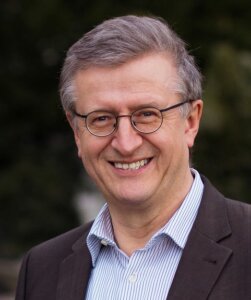
German physicist, director of the Max Planck Institute for Nuclear Physics in Heidelberg, Germany, and a professor at Heidelberg University. He conducts basic research in particle and astroparticle physics.
He has received his Ph.D. from the Ludwig Maximilian University of Munich, conducted postdoctoral research at the Fermi National Accelerator Laboratory in Chicago, USA, and was then a Fellow at CERN in Geneva, Switzerland. After that, he was a Heisenberg Fellow at Heidelberg University before becoming a professor at the Technical University of Munich.
He has been awarded a Heisenberg Fellowship by the German Research Foundation (DFG) and an honorary doctorate by Sweden’s KTH Royal Institute of Technology. The American Association for the Advancement of Science (AAAS) has selected him as an AAAS Fellow in recognition of his distinguished contributions to both theoretical and experimental particle physics.
Professor Manfred Lindner is a spokesperson of the International Max Planck Research School for Precision Tests of Fundamental Symmetries and a member of several international research networks. He works as a referee for various national and international funding agencies and is a member of national and international boards that aim to coordinate research strategies. He is also a referee or member of the editorial board of various scientific journals. Furthermore, he is a member of the advisory boards of numerous international conferences.
Professor Lindner’s research is in the field of particle and astroparticle physics. His theoretical work concerns many aspects of the standard model of particle physics and its extensions. On the experimental side, he makes leading contributions to international research projects in the field of neutrino physics and the search for dark matter. His main experimental project is currently XENON, which aims to directly detect dark matter. Lindner is the co-spokesperson of this international collaboration. He also leads the CONUS-experiment, aiming, in the area of neutrino physics, at detecting coherent neutrino scattering at low energies.
Members of the UW IAS Scientific Council
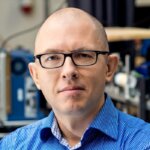
Specialist in quantum technologies; Director of the Centre for Quantum Optical Technologies at the University of Warsaw, funded by the “International Research Agendas” programme of the Foundation for Polish Science (Fundacja na rzecz Nauki Polskiej); Corresponding Member of the Polish Academy of Sciences (Polska Akademia Nauk) and Fellow Member of the Optica, an American optical society. He has conducted research and held fellowships at, among others, the University of Rochester (in the USA), the University of Oxford (in the UK), and the Nicolaus Copernicus University in Toruń, Poland.
He has authored or coauthored more than 120 scientific articles on various aspects of quantum technologies. In the last decade, he has coordinated three projects funded by the EU Seventh Framework Programme and implemented two TEAM projects supported by the Foundation for Polish Science. In addition to his scientific work at the UW, he is also the scientific coordinator of the QuantERA initiative, which brings together 39 grant agencies from 31 countries and is coordinated by the National Science Centre (Narodowe Centrum Nauki).
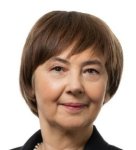
Employee of the Faculty of Chemistry at the University of Warsaw. Since 2005, she has been the head of the Centre for Chemical Metrology at the UW, and since 2013 – the director of the UW Biological and Chemical Research Centre. She is a member of the Committee on Analytical Chemistry of the Polish Academy of Sciences and chair of the Atomic Spectrometry Group of the commitee, as well as a member of the Polish Chemical Society, a vice-president of the POLLAB Polish Research Laboratories Club, and a board member of the Eurolab. From 2017 to 2022, she chaired the Metrology Council of the President of the Central Office of Measures (Główny Urząd Miar). She is also chairperson of the Programme Board of the MALAMUT publishing house.
Professor Ewa Bulska has more than 200 scientific publications in international journals, textbooks and monographs in Polish and international publications. She is the recipient of many awards, including the Bunsen-Kirchhoff Award from the German Chemical Society for outstanding achievements in atomic spectroscopy (2004); the Wojciech Świętosławski Prize of the University of Warsaw for outstanding scientific achievements in analytical chemistry applications (2006); the Wiktor Kemula Medal awarded by the Polish Chemical Society for outstanding achievements in analytical chemistry (2012); and the Jerzy Fijałkowski Prize awarded by the Committee of Analytical Chemistry of the Polish Academy of Sciences for outstanding achievements in analytical atomic spectrometry and mass spectrometry (2016). She was also awarded the Gold Cross of Merit and the Knight’s Cross of the Rebirth of Poland. She was ranked as one of the twelve most outstanding women chemists by the International Union of Pure and Applied Chemistry (IUPAC) and was awarded the title of the IUPAC Distinguished Woman in Chemistry.
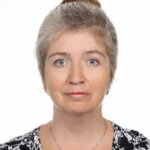
Member of the Committee on Mineralogical Sciences (Komitet Nauk Mineralogicznych) and the Committee on Geological Sciences (Komitet Nauk Geologicznych) of the Polish Academy of Sciences (Polska Akademia Nauk). She specialises in geochemistry, mineralogy, and economic geology. Professionally, she is affiliated with the Department of Economic Geology, Faculty of Geology, at the University of Warsaw. During the 2016–2020 term, she served as Vice-Dean for Finance and Investment.
Her research topics include ultramafic rocks, primarily mantle rocks associated with ophiolites. Her work has dealt with serpentinite rock raw materials and clay raw materials. She has also performed expert reports on uranium deposits in Poland and participated in studies of manganese-iron concretions from the Cape Basin (Atlantic) and studies of magmatic rocks on King George Island (Antarctica).

Molecular biologist, biochemist, geneticist. He headed an independent laboratory at the Institute of Biochemistry and Biophysics of the Polish Academy of Sciences (Polska Akademia Nauk) in Warsaw. He worked for several years at the CNRS Centre for Molecular Genetics in Gif-sur-Yvette. He is currently working at the International Institute of Molecular and Cell Biology in Warsaw, where he heads the RNA Biology Laboratory. He is a member of EMBO, Academia Europaea, and the Polish Academy of Sciences. He has received a number of awards, including the Foundation for Polish Science (Fundacja na rzecz Nauki Polskiej) Award and the Prime Minister’s Award for achievements in scientific activity. He is also an ERC Starting Grant laureate.
Prof. Dziembowski’s research interests include the regulation of gene expression at the RNA level. An important aspect of the research conducted in the laboratory he heads is the metabolism of mRNA drugs, including mRNA vaccines. As part of the Virtual Research Institute, he leads the consortium “Horizon of excellence in matrix RNA applications in immuno-Oncology”.
He has published scientific articles in prestigious molecular biology journals. He has coauthored many review articles in peer-reviewed international journals and chapters in specialised books. He also serves as a reviewer himself.
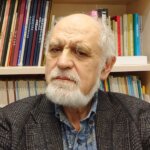
Since 1977, he has worked at the Department of Solid State Physics, Institute of Experimental Physics, Faculty of Physics, UW. He is involved in solid-state physics and specialises in the study of semiconductors and semiconducting nanostructures by magnetospectroscopy methods. He has held foreign fellowships at universities in Paris and Constance, at the Hahn-Meitner-Institut in Berlin, and at the Max Planck Institute in Stuttgart (MPI für Festkörperphysik), participating, among other things, in research using the methods of muon spin rotation (μSR) and far-infrared ellipsometry using a synchrotron.
In 2012, he was awarded the title of professor. Since 2014, he has been the head of the Department of Solid State Physics at the Institute of Experimental Physics, Faculty of Physics, UW. He has served as the manager of two projects carried out under the OPUS competition. He is the author of numerous scientific papers, as well as promoter and reviewer.
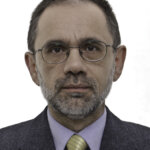
Head of the Chair of the Theory of Particles and Elementary Interactions at the Institute of Theoretical Physics, Faculty of Physics, University of Warsaw. Member of the Scientific Council of the Discipline of Physical Sciences at the University of Warsaw and member of the Warsaw Scientific Society (Warszawskie Towarzystwo Naukowe). Head of two projects implemented within the OPUS competition. His research interests are focused on the theory of particles and cosmology.
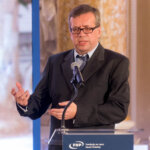
Head of the Chair of Quantum Optics and Atomic Physics at the Institute of Theoretical Physics, Faculty of Physics, UW. Laureate of numerous awards, including the 2018 Foundation for Polish Science (Fundacja na rzecz Nauki Polskiej) Award “for precise quantum-electrodynamic calculations of spectroscopic parameters of light atoms and particles” and two Prime Minister’s Awards: for his habilitation thesis and for outstanding scientific achievements. Distinguished member of the American Physical Society.
He completed a three-year fellowship at the Max Planck Institute in Germany. He was a member of the Central Commission for Degrees and Titles in its ninth term of office. In 2019, he became the chairman of the Exact and Natural Sciences Team of the Council of Scientific Excellence (Rada Doskonałości Naukowej) in its first term of office, and since 2020, he has been a correspondent member of the Polish Academy of Sciences (Polska Akademia Nauk) and the chairman of the international CODATA TGFC committee, which sets the values of physical constants. His scientific speciality is theoretical physics.
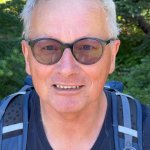
Professor Michał Praszałowicz is a theoretical physicist who has been affiliated with Jagiellonian University since his undergraduate studies. His scientific interests focus on strong interactions at both high and low energies. His main achievements include papers (co-authored with J. Kwieciński) on the formulation of the evolution equation for the odderon (the so-called BKP equation), the quantisation and study of the phenomenology of the SU(3) group-based Skyrme model for baryons and later the chiral quark model. Within these models, he has conducted studies of exotic states, including baryons containing a heavy quark. He is the author of a series of papers on the so-called geometric scaling, which is a consequence of the non-linearity of the evolution of parton distributions equations.
Professor Praszałowicz has worked in prestigious centres abroad, with long-term research fellowships at CERN, twice at Brookhaven National Laboratory in the USA, at the Ruhr University in Bochum, Germany, and at the University of Washington in Seattle. He has been a fellow of the Kosciuszko Foundation, the Fulbright Foundation and the Humboldt Foundation. He has been the project manager of grants awarded by the State Committee for Scientific Research (Komitet Badań Naukowych), three research projects implemented within the OPUS competition, and the NAWA project, as well as the co-manager of several German Research Foundation (Deutsche Forschungsgemeinschaft) projects and the Polish-French POLONIUM project.
Professor Praszałowicz has been involved in the organisation of the Cracow School of Theoretical Physics (Krakowska Szkoła Fizyki Teoretycznej) for more than 25 years, is a member of the International Organising Committee of the “Low x Physics” conference series, and has co-organised events such as conferences in the Cracow Epiphany Conference series. From 2017 to 2021, he was Chairman of the Board of the Fundamental Interactions Section of the Polish Physical Society (Polskie Towarzystwo Fizyczne), and since 2008, he has been the editor-in-chief of the journal “Acta Physica Polonica B”. He is a correspondent member of the Polish Academy of Arts and Sciences (Polska Akademia Umiejętności).
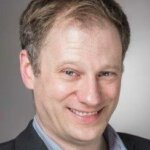
Stefan Willitsch has been a professor at the Faculty of Chemistry at the University of Basel since 2008 and is a member of the Swiss Nanoscience Institute. His previous affiliations include University College London, University of Oxford, and ETH Zurich. He has received several awards and distinctions, including prestigious Consolidator and Advanced Grants. His research activities are situated at the interface between chemistry, quantum optics, quantum physics, and nanosciences.
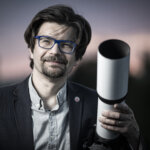
Staff member of the UW Astronomical Observatory. Research fellow at the University of Tel Aviv (2003–2004), and the University of Manchester (2004–2005). For 10 years, he worked at the University of Cambridge, where he was involved in the Gaia space mission. In 2019, he was awarded a Senior Research fellowship by the Polish-American Fulbright Foundation to conduct his research at the University of California in Santa Barbara.
For many years, he was a member of the Optical Gravitational Lensing Experiment (OGLE); currently, he is an active member of the Gaia space mission Data and Processing Consortium. He is a member of the Scientific Council of Astronomy at the University of Warsaw; formerly, he was a member of the Astronomy Committee of the Polish Academy of Sciences (Polska Akademia Nauk). His research interests include studies of dark matter and black holes with the use of gravitational lensing phenomenon as well as transient events and machine learning. He also coordinates a global network of ground-based telescopes, which perform long-term time-domain observations, supported by grants from the European Commission since 2013.

